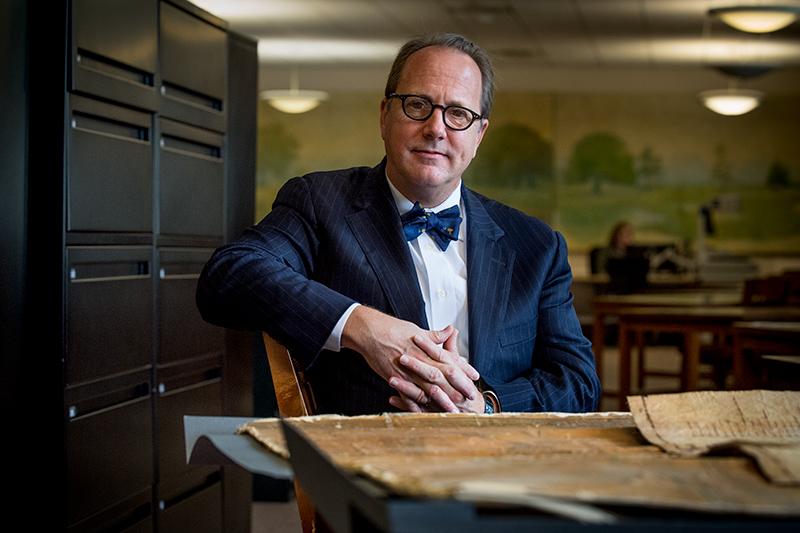Flood prevention runs in the family
It was a chance encounter with a random book in Howard-Tilton Memorial Library that brought Dennis Lambert’s professional career and family history together.
Lambert was a long-timer on the Tulane campus: He enrolled and withdrew (and enrolled again) from the university over a 14-year period, eventually earning three engineering degrees by the year 2000. But when he noticed the book First American Jewish Families in the library, it ignited interest in his Sephardic Jewish heritage and prompted him to learn more about his ancestors, separate from his engineering studies.
During the last 20 years, Lambert discovered a collection of family documents at the Louisiana Research Collection (LaRC). The documents show that Lambert’s great-great-great grandfather, Lucius Place, was a New Orleans city official in the 1860s. He was president of the second drainage district. As part of his job, Place investigated flood control measures and reached some of the same conclusions as today’s water experts.
“I was shocked when I saw that [Place] was the president of the second drainage district,” Lambert said. “Nobody in the family knew about him. It was forgotten, and if it was not for those archives, it would not have been discovered.”
At the time, Place and his associate, a French engineer named Raymond Thomassy who also championed the idea of the Bonnet Carre Spillway early on, were involved in discussions that debated whether swampy 19th-century New Orleans could prevent flooding through conventional draining or by sediment diversions to elevate swamplands. Thomassy was a pioneer of sediment diversion; LaRC documents show Thomassy’s correspondence with Dutch experts on the matter.
The papers were donated to LaRC by a Place descendant who had no children but wanted to preserve the family’s legacy.
Lambert, a civil engineer who studied water-management issues around the Gulf of Mexico, was excited to know that the men’s ideas were still relevant more than 160 years later. He hopes to have his research published in the future.
Without sophisticated equipment or software, “they predicted what was going to happen [with flooding in New Orleans], before the Civil War,” Lambert said. “It’s mind-boggling.”

